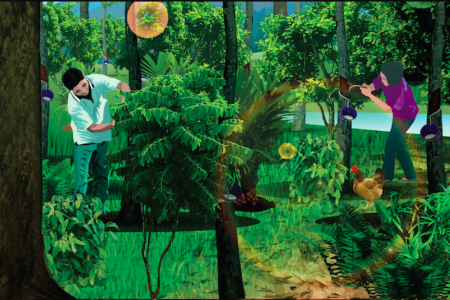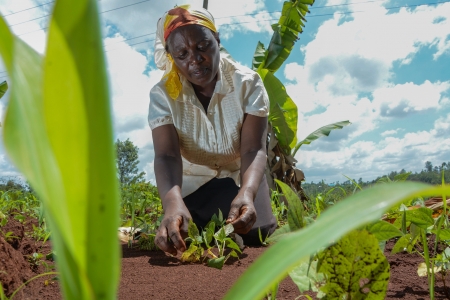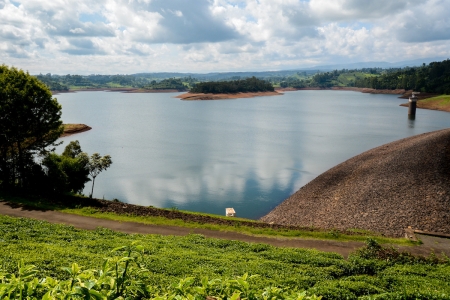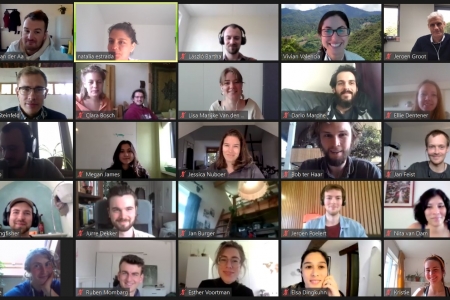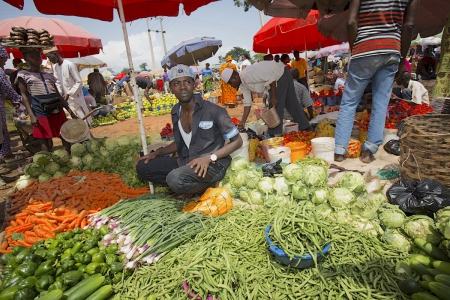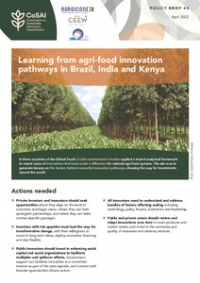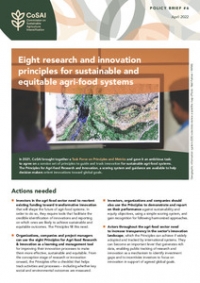The project will evaluate the impacts of selected irrigation systems on the White Volta Basin in Northern Ghana at three scales (small, medium and large). Firstly, the study will examine the contribution of each irrigation system to enhanced rural livelihoods and gender and generational equity; and how ecosystem services underpin this development and are affected by it. Secondly, a comparative analysis of systems at the three scales will be undertaken to assess and explain relative differences in their contributions to livelihoods, equity and healthy ecosystems. Finally, based on this comparison, the project will examine the potential for up- and out-scaling of irrigation investments that give women and youth a ‘head start’ and the changes in policy and skills needed to provide them with positive incentives for the sustainable management of ecosystems and their services. The rationale for this study lies on the overall paucity of information that decision- makers, farmers, public agencies, development partners and other investors face to make irrigation investment decisions at different scales in the Volta Basin. The direct effects of irrigation on productivity, employment and incomes are well documented. Irrigation programs and investments have focused solely on increased food production despite the large potential of irrigation to reduce poverty as a broader concept of well- being. Given the potentially high rewards, but also high possibility of failure, the assessment of irrigation investments must go beyond scale to integrate concerns regarding ecosystem services, livelihood impacts, and youth and women’s empowerment. There is need to generate new knowledge on the feedback mechanisms and indirect effects that link irrigation, livelihoods and ecosystem services, as well as the effects on gender and generational equity. The project’s activities will be divided into three work packages: (i) Understanding processes of irrigation impacts on livelihoods, gender & generational equity and how these processes are underpinned by ecosystem services; (ii) Identifying policy and institutional changes and developing women and youth’s capacities to improve irrigation design and implementation to maximize gender, livelihood and ecosystem outcomes; and (iii) Examining opportunities for out-scaling promising irrigation investments to other areas in Northern Ghana. The study will deliver a combination of different types of outputs targeted to specific next-user groups. Research outputs will include reports and publications based on the results of the work packages and gendered and generational maps. Outputs targeted to next-users will consist of investment briefs on promising irrigation technologies and practices suitable for women and youth, training materials targeted to extension and NGO officers and actors along the irrigated agriculture value chain and several web- stories. Finally, the project will facilitate the creation of an innovation platform from its inception that will conduct deep analysis of opportunities and constraints that women and youth face in deriving direct and indirect benefits from irrigation development and generate knowledge that enhances out-scaling of technological and institutional innovations. As a result of the project, we expect agricultural productivity to increase by exploiting the positive linkages between livelihoods and ecosystem services in various irrigation systems and providing guidelines for productive and sustainable investments. In addition, the capacities of women and youth will be enhanced to more effectively manage their resources and reduce degradation of natural capital by analysing current irrigation systems and identifying best practices and innovations through a holistic assessment.
menu

